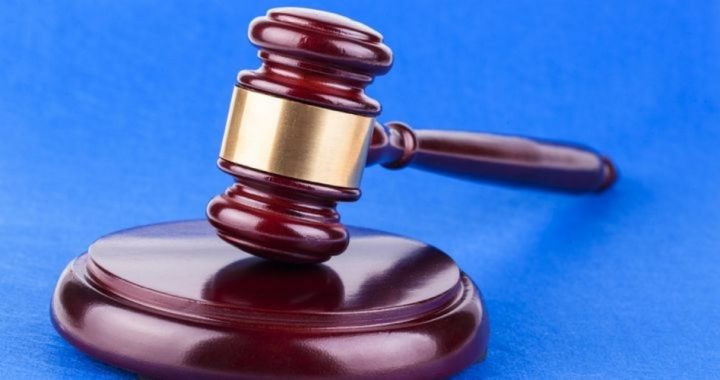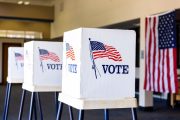
Two federal judges — the first in Hawaii and the second in Maryland — have issued rulings blocking all or substantial provisions of President Trump’s March 6 executive order that banned foreign nationals from six countries identified as being state sponsors of terrorism or havens for terrorists.
The executive order was scheduled to take effect on the 16th, but only hours before then, Judge Derrick K. Watson, of the Federal District Court in Honolulu, granted a temporary restraining order enjoining the Trump administration executive branch from enforcing or implementing two key sections of the March 6 executive order across the Nation.
Then, overnight on the 16th, U.S. District Judge Theodore D. Chuang in Maryland declined to block the executive order in its entirety, but instead issued a nationwide injunction that enjoined (blocked) the Trump administration from enforcing “the travel ban for citizens of the six Designated Countries in Section 2(c) of the Second Executive Order.”
Section 2(c) reads in part: “I hereby proclaim … that the unrestricted entry into the United States of nationals of Iran, Libya, Somalia, Sudan, Syria, and Yemen would be detrimental to the interests of the United States. I therefore direct that the entry into the United States of nationals of those six countries be suspended for 90 days from the effective date of this order.”
Both judges asserted that the executive order amounted to religious discrimination against Muslims. Though all six nations covered by the order have Muslim majorities, Trump has denied that his order targets Muslims, specifically, but merely continues national security policies put in place by his predecessors. After another judge in Seattle issued a ruling stopping Trump’s January 27 executive order banning entry to the United States from seven nations, Trump issued a statement two days later that said, in part:
The seven countries named in the Executive Order are the same countries previously identified by the Obama administration as sources of terror. To be clear, this is not a Muslim ban, as the media is falsely reporting. This is not about religion — this is about terror and keeping our country safe. There are over 40 different countries worldwide that are majority Muslim that are not affected by this order.
The second executive order that Trump signed on March 6 dropped some language that had been included in his original January 27 travel ban order that made exceptions for religious minorities. The provision allowed the State Department to prioritize refugee claims made by individuals on the basis of religious-based persecution, provided that the religion of the individual is a minority religion in the individual’s country of nationality. This might have allowed our government to give priority to Christians (and also Alawites and other sects), who are minorities in Muslim-majority countries. However, this well-intentioned item, intended to help persecuted Christians, was misconstrued by critics as being “anti-Muslim,” so it was removed from the second order.
Despite this change, both Watson and Chuang (who were both appointed by former president Obama) made numerous reference to Trump’s alleged anti-Muslim bias in their respective decisions.
The New York Times reported that Watson wrote that a “reasonable, objective observer” would view even the new order as “issued with a purpose to disfavor a particular religion, in spite of its stated, religiously neutral purpose.”
The Times report continued:
In Maryland, Judge Theodore D. Chuang echoed that conclusion hours later, ruling in a case brought by nonprofit groups that work with refugees and immigrants, that the likely purpose of the executive order was “the effectuation of the proposed Muslim ban” that Mr. Trump pledged to enact as a presidential candidate.
A report in the Washington Post observed that Chuang agreed with Watson’s conclusions that the executive order had its roots in a Muslim ban proposed Trump when he was still a presidential candidate.
The Post cited Chuang’s opinion stating that the new executive order was “the realization of the long-envisioned Muslim ban.”
“These statements, which include explicit, direct statements of President Trump’s animus toward Muslims and intention to impose a ban on Muslims entering the United States, present a convincing case that the First Executive Order was issued to accomplish, as nearly as possible, President Trump’s promised Muslim ban,” Chuang said.
In the above statement, Chuang revealed that he had failed to keep with the evolution of Trump’s position during the presidential campaign. A Reuters report shortly after the election last November noted that early on in his campaign, Trump had proposed a temporary ban on Muslims entering the country as a means of countering terrorism. But, as the report observed, in the later stages of the campaign, Trump rephrased his position “as a proposal to temporarily suspend immigration from regions deemed as exporting terrorism and where safe vetting cannot be ensured.”
Furthermore, as almost everyone except Chuang realizes, there is a big difference between campaign rhetoric and post-election action. One would think that a judge, trained to separate hearsay from evidence, would make this distinction.
Watson, in his ruling, also preferred to judge not what the executive order says, but what he believes it means “in context.” He wrote:
A review of the historical background here makes plain why the Government wishes to focus on the Executive Order’s text, rather than its context. The record before this Court is unique. It includes significant and unrebutted evidence of religious animus driving the promulgation of the Executive Order and its related predecessor.
Trump wasted little time before speaking out against Watson’s ruling. Speaking two hours later, on March 15, at Nashville’s Municipal Auditorium, he said the court was motivated by “political reasons,” adding that he expected to be “criticized … for speaking harshly about our courts.”
ABC News quoted further from Trump’s remarks:
The order … blocked was a watered-down version of the first order that was also blocked by another judge and should have never been blocked to start with….
This ruling makes us look weak.
Trump continued: “This new order was tailored to the dictates of the 9th Circuit’s — in my opinion — flawed ruling.”
“We are going to fight this terrible rule,” Trump told those gathered in Nashville. “We are going to take our case as far as it needs to go, including all the way up to the Supreme Court. We are going to win. We are going to keep our citizens safe and regardless, we are going to keep our citizens safe, believe me.”
Related articles:
Trump Signs New Immigration Executive Order
Judge Grants Stay to Bar Trump DHS From Deporting Aliens From Seven Nations of Concern
Trump’s Order Suspending Refugee Program: Racism or Balanced National Security?
Trump Executive Order to Ban Nationals of “Countries of Particular Concern”
Regarding Fake Passports for Syrians
Obama Scrapping Registration of Aliens From Mostly Muslim Nations
Sons of Middle Eastern Immigrants Recruited by Terrorist Groups
Border Patrol: Arrests of Pakistanis, Afghans Up This Year
Military Concerned About Large Numbers of Individuals From Terrorist Regions Crossing Border
Smuggling Network Brings Aliens With Terrorist Ties Across U.S. Border
Mexican Cartels Moving Terrorists Across Southern U.S. Border
Terrorist Smuggling Into U.S. a Real Concern
Pakistanis With Terrorism Ties Caught After Crossing U.S.-Mexican Border



